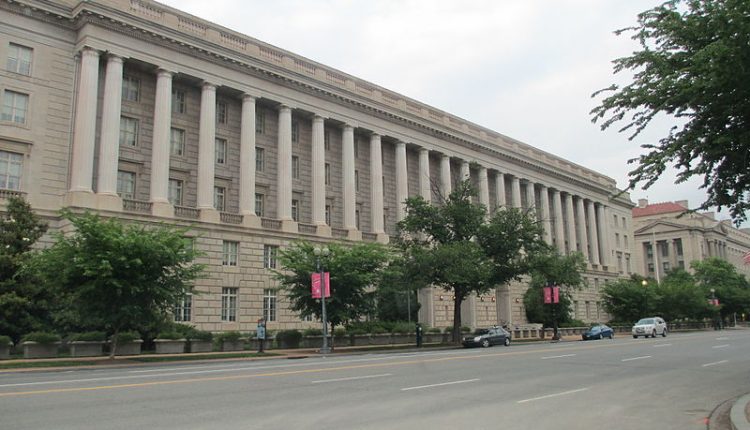
IRS Treatment of PPP Loan Proceeds Imposes Unexpected Costs
By Charles Jeane, Assistant Chief Counsel
On April 30, the IRS released Notice 2020-32, which provides guidance on the deductibility of otherwise deductible expenses incurred in a trade or business if a taxpayer received a loan through the Paycheck Protection Program (PPP) that is eventually forgiven. The notice states:
“Specifically, this notice clarifies that no deduction is allowed… for an expense that is otherwise deductible if the payment of the expense results in forgiveness of a covered loan … and the income associated with the forgiveness is excluded from gross income….”
The IRS has taken the position that small businesses that have used a PPP loan to keep paying their employees during the pandemic will not be allowed to deduct the normally deductible ordinary and necessary business expenses of payroll, mortgage or rent payments, and utilities paid with the PPP loan proceeds. The agency’s position is based on the concept of a “double tax benefit,” because the loan proceeds, if forgiven, would not be included in gross income and the business would claim a deduction for the expenses allocated to the forgiven loan proceeds.
The agency’s interpretation of the deductibility of these expenses could lead to increased tax liabilities for businesses that have income for the tax year but cannot deduct all ordinary and necessary business expenses, such as payroll, imposing an unexpected hardship. Businesses may also incur additional accounting or tax professional fees to evaluate whether forgiveness of the PPP loan benefits outweigh the possible additional tax burden and to determine how, if at all, section 108 of the Internal Revenue Code plays into that determination.[1] Allowing the deduction of the ordinary and necessary trade or business expenses allocated to the forgiven loan proceeds has bipartisan support in Congress. Sen. Charles E. Grassley, chairman of the Senate Finance Committee, said that the IRS notice was contrary to the PPP’s intent. And a spokesperson for Rep. Richard Neal, chairman of the House Ways and Means Committee, stated that the committee planned to “fix this in the next response legislation.” The tension between Congress and the Treasury Department on Notice 2020-32 become clear as Treasury Secretary Steven Mnuchin stated on May 4 that any belief that the IRS’s interpretation is against the intent of the PPP is “just wrong.”[2] On May 5, 2020, Senators Grassley and Wyden and Representative Neal sent a letter to Secretary Mnuchin outlining their concerns and disagreements with IRS Notice 2020-32. Also on May 5, Senators John Cornyn, Chuck Grassley, Ron Wyden, Marco Rubio, Steve Daines, Tom Carper, and Catherine Cortez Masto introduced the Small Business Expense Protection Act. [3]
The CARES Act created the PPP to help small businesses keep
employees on the payroll and to pay other ordinary and necessary businesses
expenses during the COVID-19 pandemic. If certain guidelines are met, the CARES
Act also allows PPP loan proceeds to be forgiven and for the forgiven loan
proceeds to be excluded from gross income. Generally, expenses such as payroll,
rent/mortgage, and utilities are deductible ordinary and necessary trade or
business expenses under section 162 of the tax code. Section 265 of the tax code
disallows a deduction for any amount otherwise allowable as a deduction that is
allocable to income that is wholly exempt from taxation to prevent a taxpayer
from receiving a double tax benefit (income that is excluded from tax and a
deduction for expenses related to such income). Notice 2020-32 clarifies the
IRS’s position that ordinary and necessary business expenses, although
“otherwise deductible,” which are paid with PPP loan proceeds that are later
forgiven and excluded from gross income under the CARES Act are not deductible
under section 265.
[1] For additional views on issues surrounding Notice 2020-32 see, Brandon N. Mourges and Brian J. Crepeau, “IRS Notice 2020-32: Should Taxpayers Deduct Expenses Resulting in Loan Forgiveness under the Paycheck Protection Program Despite the Contrary Guidance of the Internal Revenue Service?” Rosenberg Martin Greenberg LLC Tax News, May 5, 2020.
[2]Zachary Warmbrodt, “Mnuchin Resists Changes to Small Business Loans As Restaurants Protest,” Politico, May 4, 2020.
[3] S. 3612’s official short title is “A bill to clarify for purposes of the Internal Revenue Code of 1986 that receipt of coronavirus assistance does not affect the tax treatment of ordinary business expenses.” At the time of this post, the text of the bill was not available.
